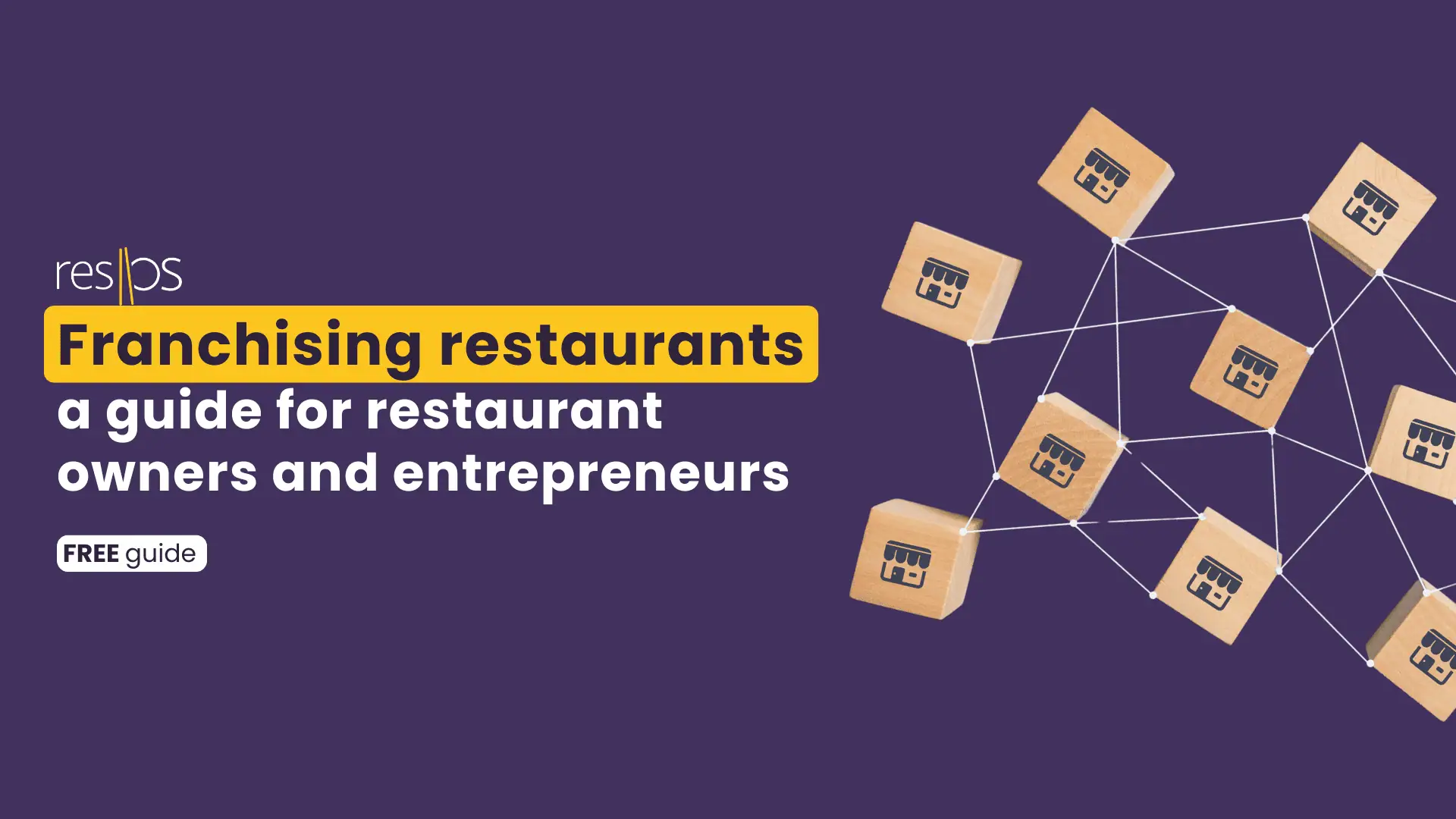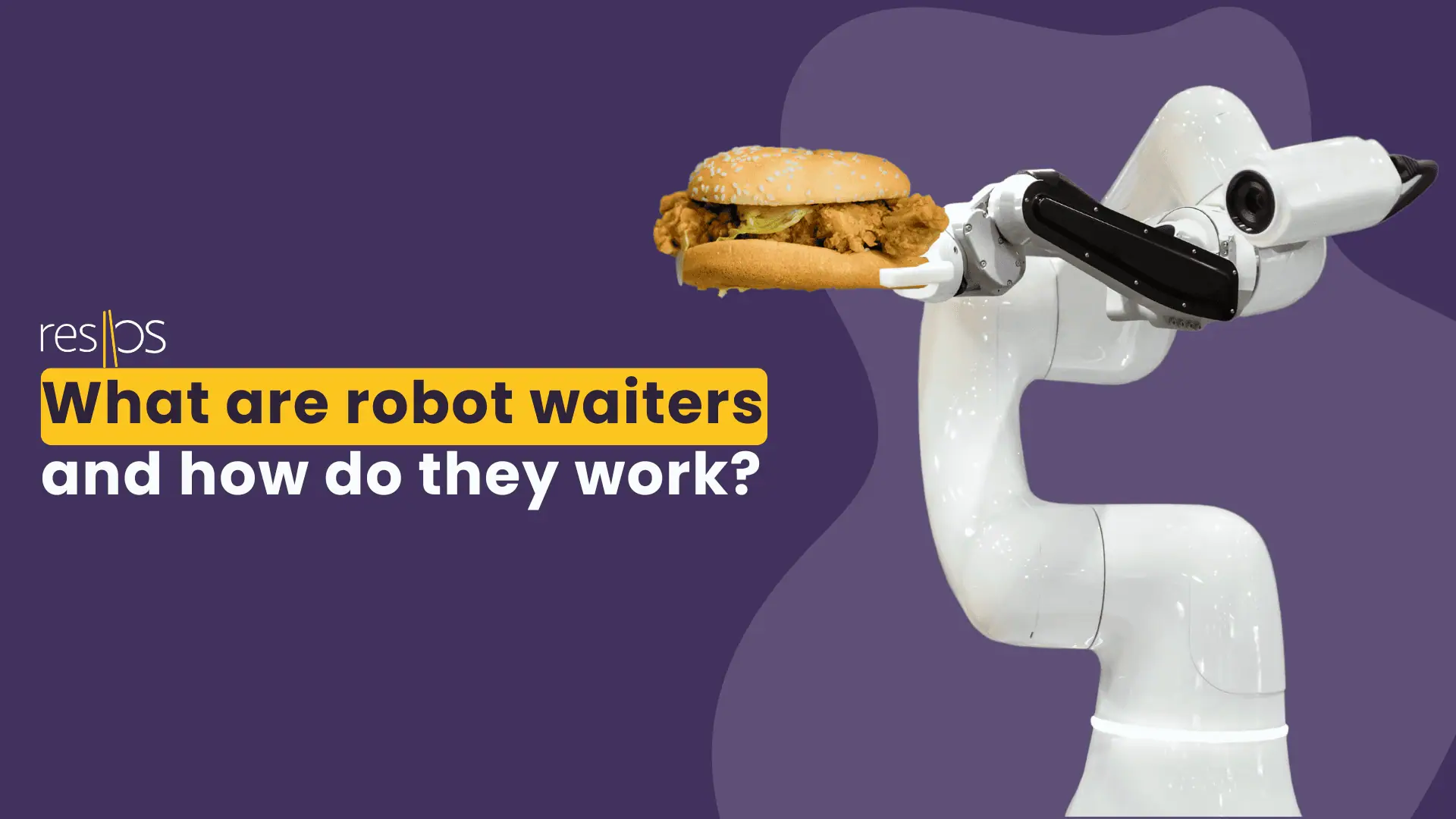Franchises are everywhere. It’s really no wonder. In the US alone there are over 800k franchise establishments and the industry is expected to earn $890 billion in 2024. What’s more, McDonald’s is the leading franchise, raking $118 billion dollars in sales in 2022.
But franchises aren’t only a game for the big players
Restaurant owners with thriving businesses can look into franchising their own establishment for steady growth and revenue. Curious and proactive entrepreneurs have also much to gain from opening their restaurant following another’s ideas and business model, without worrying about whether it works or not.
But how do you even start a franchise? What are the pros and cons for both franchisees and franchisors? How can technology like restaurant booking systems help franchise owners enhance efficiency and profitability?
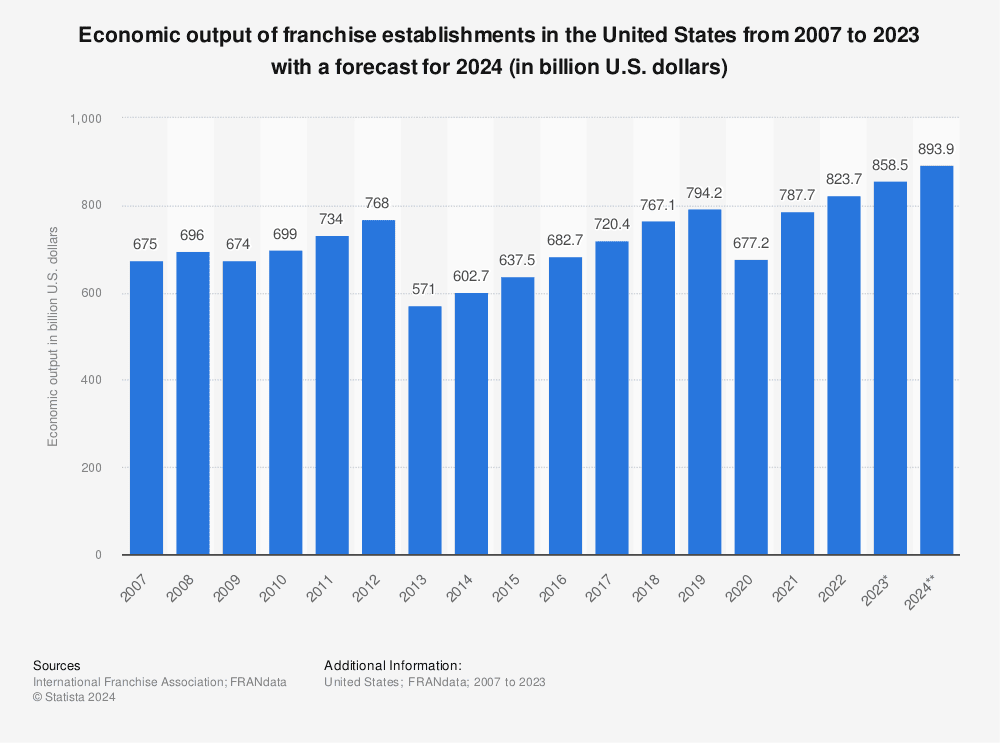
Don’t worry. We’ve got you covered in this article on franchising restaurants, for both the franchisee and the franchisor.
Understanding Restaurant Franchising
First, what is franchising in the restaurant industry?
Basically, an established restaurant business (franchisor) licenses to an independent owner (franchisee) its:
- brand
- business model
- operations and ideas
What does the franchisor get in return? In the next section, we’ll look into franchising’s pros and cons, so read on!
Read more about how to make a restaurant business plan 👉 here
Benefits of restaurant franchising
There are several perks for both franchisees and franchisors when it comes to sharing a business model, brand, and operations.
For franchisors
💡 A restaurant franchisor is a business entity that owns the rights and trademarks of a restaurant brand and grants licenses to individual operators, known as franchisees, to open and operate locations under the brand’s name. The franchisor provides the franchisees with a proven business model, operational support, branding, and marketing, in exchange for a fee and ongoing royalties.
Faster expansion
Franchising allows the franchisor to grow their business without the management required to expand it. It also avoids the heavy investment that comes along with opening new establishments as the franchisees are the ones providing the capital to open new locations.
Reduced risk and management
Franchising reduces the management burden as well as the financial risks for the franchisor. They aren’t responsible for the associated financial risks of opening a new restaurant, much less managing day-to-day operations.
Increased brand awareness
Opening new restaurants in different locations means more people will recognize your brand, giving you a greater exposure and more recognition in the market. This, in turn, strengthens your brand’s identity and customer base.
Profitable revenue stream
Franchisors generate revenue through much more than an initial franchising fee. Royalty fees, marketing fees, and other fees such as the use of software and technology are common in franchising business models.
Motivated franchisees
Franchisees have their money at stake as the success of their restaurant is often tied to their income. This inner motivation leads to higher performance when compared to other company-owned establishments.
Economy of scale
As the franchise expands, the franchisor gains leverage its buying power to negotiate better deals for ingredients, equipment and other supplies, thus benefiting both franchisee and franchisor.
Innovation and feedback loop
Franchisees test at times marketing strategies, menu items and operational tweaks in their location. This constant experimentation is fertile ground for improving your business and marketing strategy overall with constant data flowing.
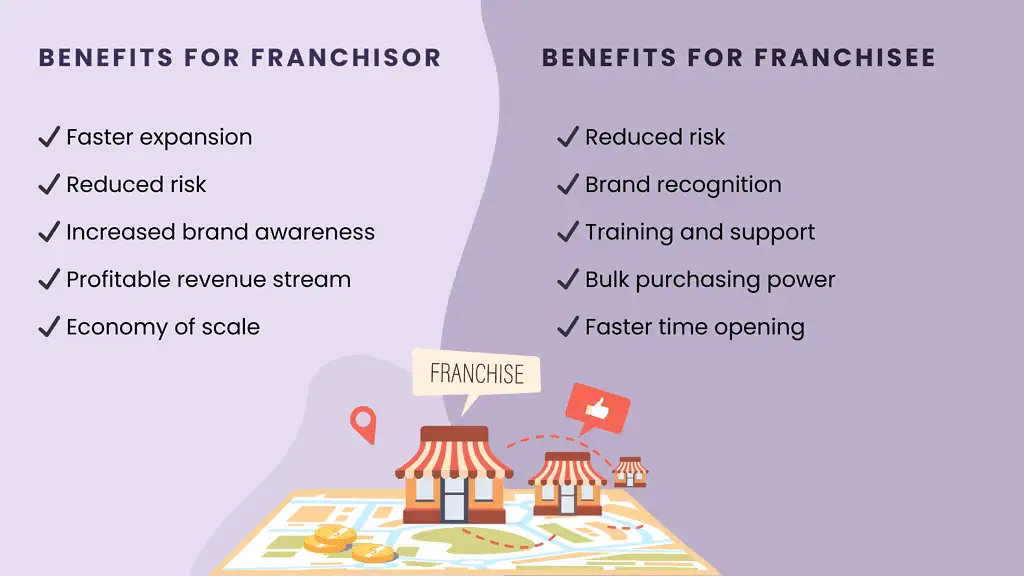
For franchisees
💡A restaurant franchisee is an individual or entity that purchases the rights from a franchisor to open and operate a restaurant under the franchisor’s brand name. The franchisee invests in the location, equipment, and staff, and in return, benefits from the established brand, business model, and support services provided by the franchisor. They pay initial fees and ongoing royalties to the franchisor for using the brand and its resources.
Reduced risk and proven business model
Starting an independent restaurant is a huge risk. Franchising allows you to open a new restaurant following a tried and tested business model. This reduces the risk of failure compared to venturing out on your own.
Brand recognition and established customer base
Franchisees benefit from using a well-recognized brand and an established customer base. This can reduce the time and resources required to attract new customers which are the hardest ones to get.
Training and support
Most franchisors offer continuous training and support to its franchisees and their staff. This ensures optimal quality and consistency across all locations which new entrepreneurs can benefit from.
Bulk purchasing power
A franchisor’s buying power is undeniable. Under a franchise, buying equipment, supplies and ingredients becomes easier, leading to significant cost savings by franchisees.
Marketing and advertising support
It’s not only the day-to-day operations which are standardized. Marketing and advertising becomes easier when there is a national or regional marketing campaign rolling. This way, franchisees don’t have to carry the entire burden of developing and executing a restaurant marketing strategy.
Faster time opening
The process of opening a franchised restaurant is typically much faster than a regular establishment. The franchisor often has a system in place in terms of real estate, construction and permitting which can speed up the entire process.
Potential for multiple locations
Scalability is one of the biggest advantages of franchising for franchisees. They can have under their wing several different locations, thus broadening their revenue, growth and profitability. The Process of Franchising.
❗NOTE: resOS restaurant booking system includes a feature called Multiple Locations that is designed to simplify the management of your franchised restaurants. This tool allows you to oversee bookings, operations, and data across all your locations from a single platform, enhancing efficiency and coordination within your franchise network.

Manage all your franchise locations effortlessly with resOS
Centralize, simplify, and excel with our multiple locations feature

For Franchisors
For successful and ambitious restaurant owners, the question remains: how do you franchise your restaurant in the first place?
An overall plan should look like this:
- Develop a franchise model — this includes menus and recipes standardization, training programs and a robust booking management system to use throughout your franchises
- Recruit qualified franchisees — use targeted marketing, attend franchise events either online or in your local area and network to find the best candidates for your franchise
- Draft contracts with franchisees — contracts establish the grounds for a mutually beneficial relationship, so don’t underestimate them.
- Offer franchise support — work with your franchisee and establish an open line of communication with ongoing guidance training and marketing assistance to your franchisees
In the end, remember that a franchisee’s success is a franchisor’s success.
For Franchisees
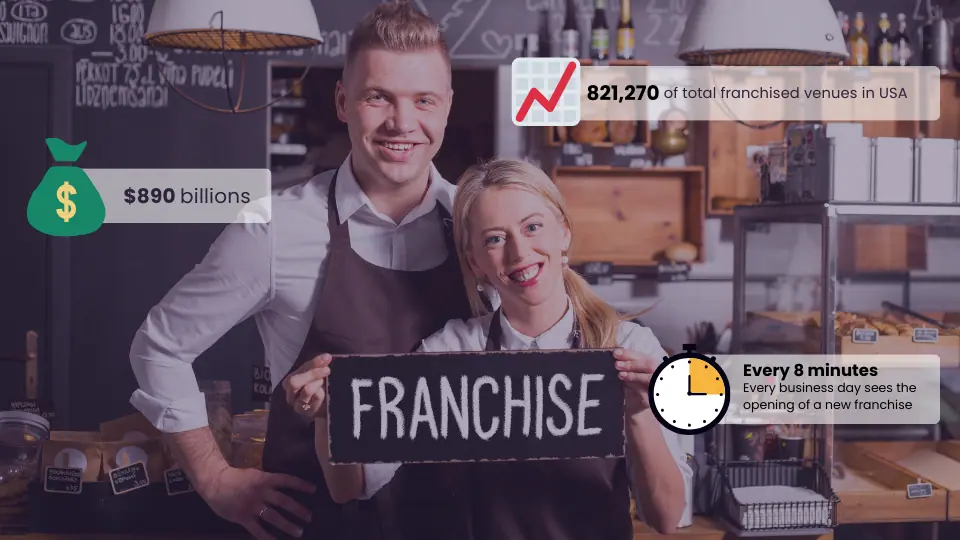
If you are a new entrepreneur looking to take advantage of franchising opportunities, this guide is also for you. You’ll first need to decide if this is the right step for you.
How to decide
Is franchising even right for you? Think of your personality and your risk tolerance. Do you dream of owning your own restaurant with your own spin and personality, or are you more looking for a new adventure with less risk associated? Answering these questions will put you on the right path towards success.
You’ll also need to decide which franchises even to go for. Try choosing a franchise which not only matches your interests, but also one which has a market demand for it. There’s a McDonald’s in the Negev desert in Israel, but please don’t open one in the middle of the Sahara desert.
Finding the right franchise
Ask questions! Talk to the franchisor about their experience, financial requirements and support offered. Only if you have all of the details in your hand will you know if this is the right franchise for you.
Research several franchises, their business model and operations, and talk to other franchisees in the business.
Financing and investment
Think of the costs associated with franchising. Don’t think only about the initial investment of opening a new location, but also look into the franchise fees, the ongoing royalties and other hidden costs which you may not think of at first.
When talking about investments, consider your funding options, whether that be personal savings, loans or looking for investors.
Management and operations
Even if franchising comes with standard operations and systems, you’ll still need to manage your day-to-day activities and adapt to the local market. Be sure to maintain the franchise’s brand identity while catering to local tastes.
You’ll also have the opportunity to experiment and find new ways of optimizing your franchisor’s model. Isn’t that exciting?
A booking management system for your franchise
Whether you’re a franchisor or a franchisee, your business model can always improve and be optimized. If you aren’t using it yet, why not consider a booking management system to ease your burden on calls for reservations?
- A more profitable and efficient management system
- Standardization throughout your franchise
- Online user-friendly reservations
- An improved table management system
- Reduced wait time for your guests
- Integration with Google Reserve, Facebook Pixel and many other features
Try a 30-day-free trial and watch your franchise soar.
